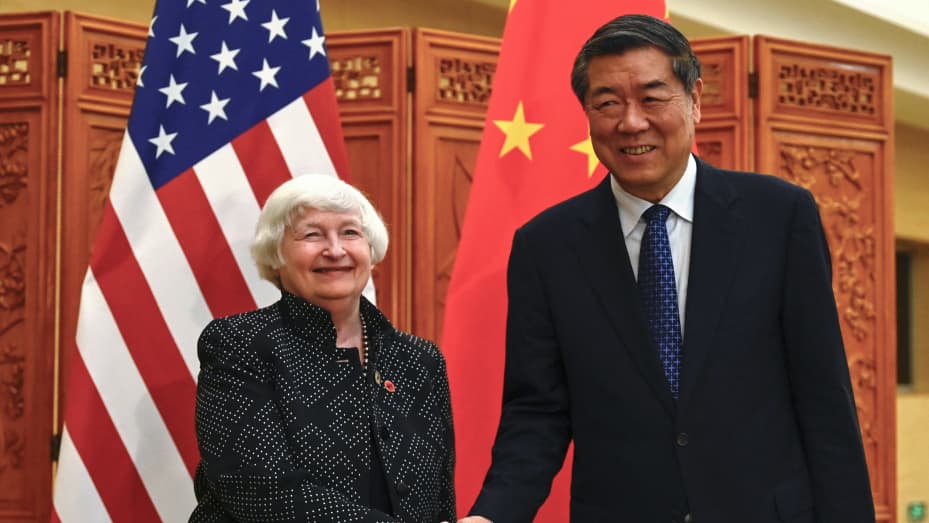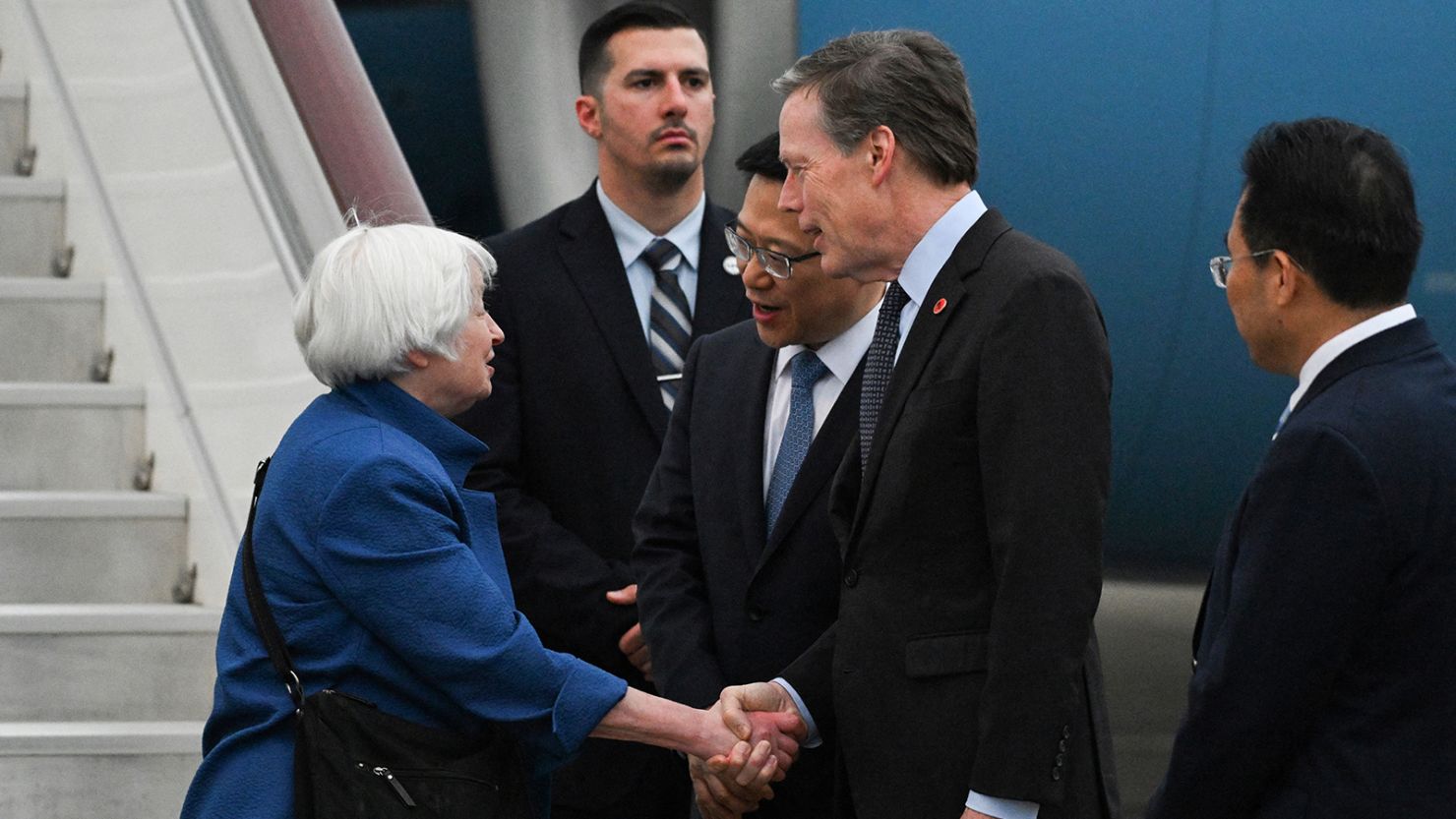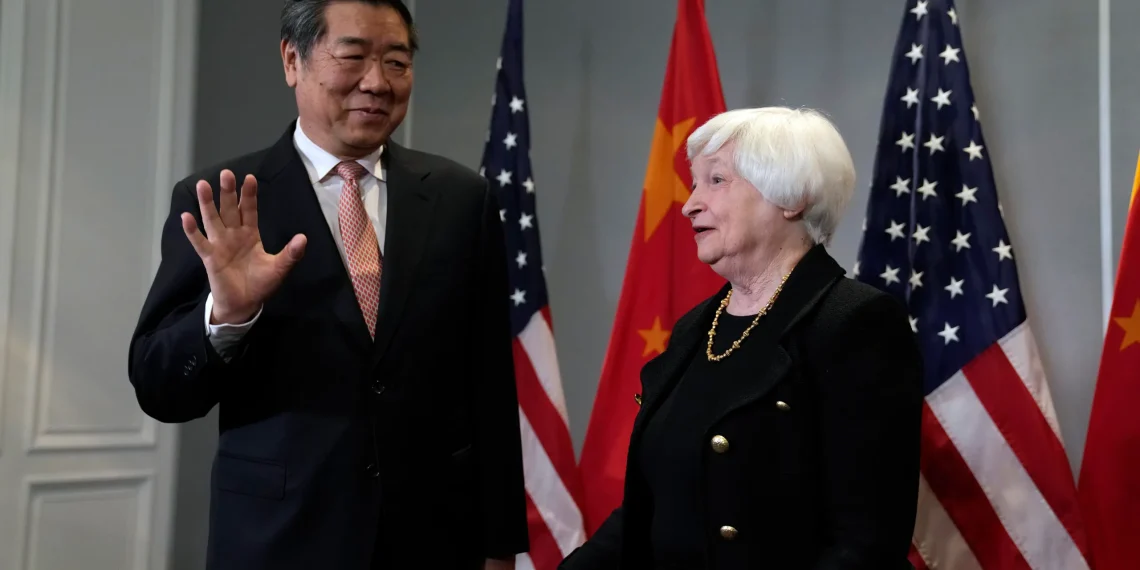U.S. Treasury Secretary Janet Yellen has expressed mounting concerns about China’s surplus manufacturing capacity during her four-day economic discussions with Chinese officials.
Yellen emphasized the necessity for China to mitigate its overproduction, particularly in sectors like electric vehicles and solar panels, which are flooding global markets amidst a downturn in domestic demand.
Addressing about 40 representatives of the American Chamber of Commerce in Guangzhou, Yellen remarked that China’s expansive manufacturing capabilities pose a significant challenge to global economic stability.

She stressed that while overcapacity isn’t a novel issue, its escalation in various sectors presents emerging risks that demand attention.
The dialogue between Yellen and Chinese officials highlighted mutual interests in addressing issues such as climate change and illicit finance. Discussions also included the establishment of a financial working group to manage potential financial risks associated with bank failures in either economy.
China’s ambitious economic growth target of 5% for 2024 has spurred increased investment in high-technology sectors amid challenges stemming from a property crisis and subdued consumer demand.
However, economists argue that China’s growth model necessitates substantial restructuring to promote domestic consumption and lessen dependence on investment.
Yellen’s meetings underscore the importance of bilateral communication on challenging economic issues, including overcapacity and national security-related economic policies.
While Yellen refrained from issuing direct threats of new trade barriers, she acknowledged the possibility of further actions to protect U.S. industries from undervalued Chinese imports.

Despite not expecting a major policy shift from China as a result of her visit, Yellen aims to solidify a resilient U.S.-China relationship capable of withstanding unforeseen challenges.
Yellen intends to address concerns regarding the business climate in China for foreign companies, citing unfair treatment compared to local competitors.
The dialogue follows recent discussions between U.S. and Chinese commerce officials, where concerns over overcapacity and trade imbalances were raised. Both sides expressed a desire for stable economic and trade relations amidst escalating tensions.




